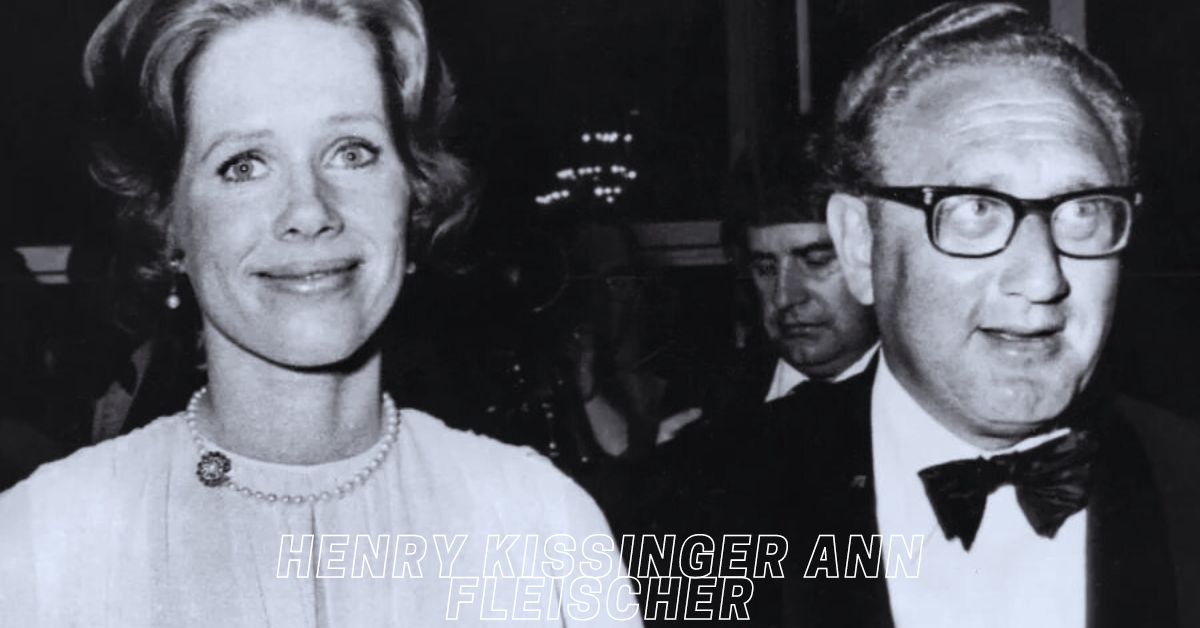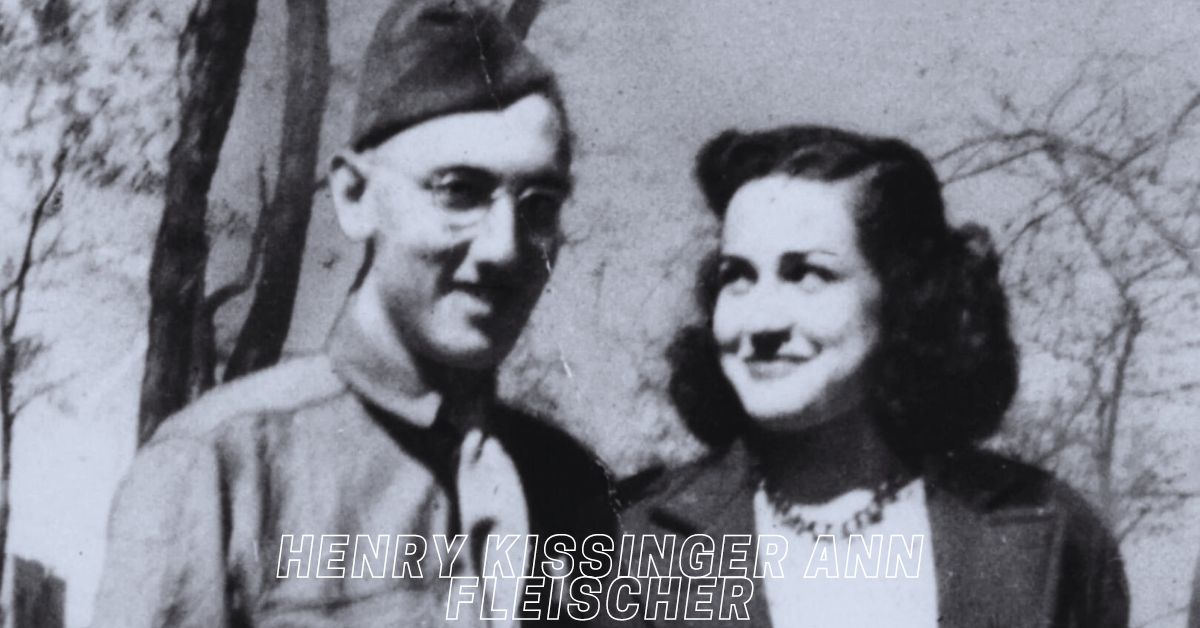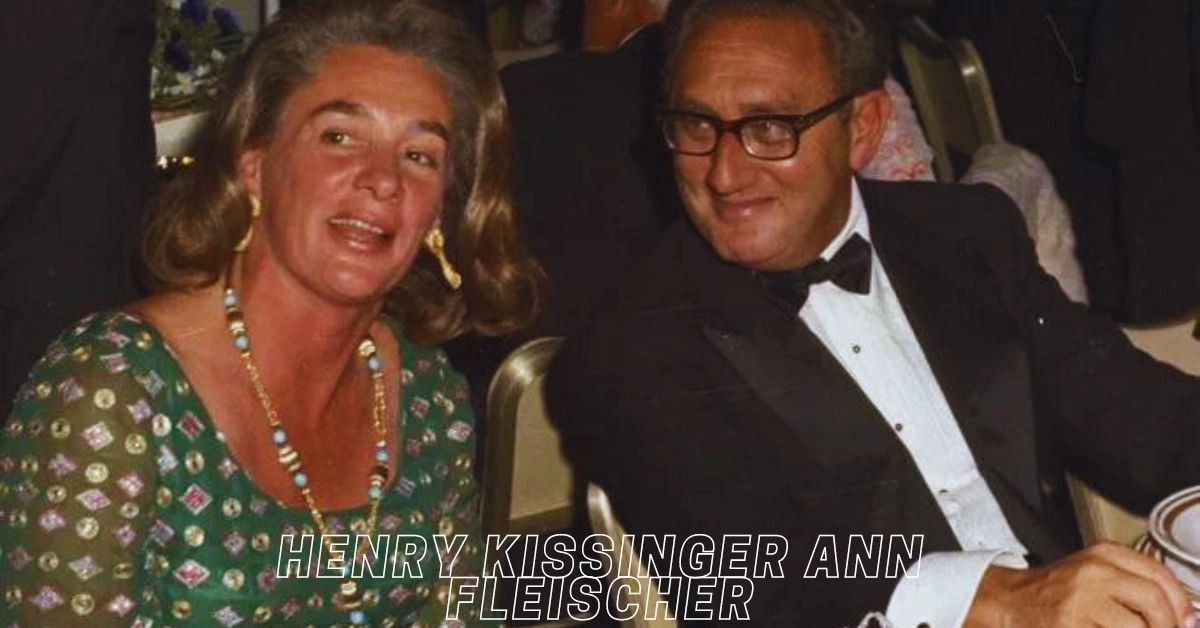Introduction
The story of Henry Kissinger Ann Fleischer is one of notable historical and personal significance. Henry Kissinger, an influential diplomat and Nobel Peace Prize laureate, has been a central figure in American foreign policy for decades. His personal life, particularly his relationship with Ann Fleischer, has also drawn interest. This article explores their backgrounds, their partnership, and the impact they have had on each other’s lives.
Early Life of Henry Kissinger
Henry Alfred Kissinger, born on May 27, 1923, in Fürth, Germany, was a pivotal figure in international diplomacy. His family fled the Nazi regime, moving to the United States in 1938. Settling in New York, Kissinger’s early experiences with immigration and displacement shaped his worldview. He attended the City College of New York before serving in the U.S. Army during World War II. After the war, he pursued higher education at Harvard University, where he earned his bachelor’s degree in political science, followed by a master’s degree and a Ph.D. in government.
Henry Kissinger’s Career
Henry Kissinger Ann Fleischer became a prominent duo in the 1950s when Kissinger’s career began to soar. His work on nuclear strategy and international diplomacy garnered attention, leading to his appointment as National Security Advisor and later Secretary of State under Presidents Richard Nixon and Gerald Ford. His efforts in negotiating the end of the Vietnam War, the opening of relations with China, and the détente with the Soviet Union were instrumental in shaping U.S. foreign policy.
Ann Fleischer’s Early Life
Ann Fleischer, born on August 15, 1924, in New York City, was a prominent socialite and philanthropist. She was educated at prestigious institutions and came from a well-established family. Her background in social circles and charitable work laid the foundation for her later public and private endeavors. Fleischer’s early life was marked by her involvement in various social and cultural activities, reflecting her commitment to community and service.
The Meeting and Relationship
Henry Kissinger Ann Fleischer met in the early 1950s. Their relationship blossomed over time, with Fleischer becoming an integral part of Kissinger’s life both personally and professionally. Their partnership was characterized by mutual support and shared interests in cultural and social matters. Ann Fleischer’s influence on Kissinger’s social circles and her involvement in philanthropic activities complemented Kissinger’s diplomatic career.
Biography
| Name | Date of Birth | Occupation | Notable Contributions |
| Henry Kissinger | May 27, 1923 | Diplomat, Political Scientist | Negotiated the end of the Vietnam War, facilitated U.S.-China relations, and promoted détente with the Soviet Union. |
| Ann Fleischer | August 15, 1924 | Socialite, Philanthropist | Supported various charitable causes including education, the arts, and healthcare. |
Marriage and Family Life
Henry Kissinger Ann Fleischer were married on July 15, 1956. Their marriage was a blend of public prominence and private companionship. They had a daughter, Elizabeth Kissinger, born in 1958. The couple’s family life was often in the public eye due to Kissinger’s high-profile career, but they managed to maintain a relatively private and supportive home life. Ann Fleischer’s role as a partner was crucial in managing the complexities of Kissinger’s career and public life.
Ann Fleischer’s Contributions and Philanthropy
Ann Fleischer was known for her extensive philanthropic work. She was involved in numerous charitable organizations, including those focused on education, the arts, and healthcare. Her contributions to various causes were significant, and she used her position and resources to support initiatives that aligned with her values. Her work in philanthropy reflected her commitment to social betterment and her influence on Kissinger’s philanthropic pursuits.
Kissinger’s Diplomatic Achievements
During Kissinger’s tenure as National Security Advisor and Secretary of State, he played a pivotal role in several major diplomatic achievements. These included the negotiation of the Paris Peace Accords, which aimed to end the Vietnam War, and the facilitation of the historic visit of President Nixon to China in 1972. Kissinger’s approach to diplomacy, characterized by his realist perspective and strategic vision, left a lasting impact on international relations.
Ann Fleischer’s Social Impact
Ann Fleischer Henry Kissinger’s social influence extended beyond her philanthropic work. She was a prominent figure in New York’s social scene, known for her involvement in cultural and social events. Her presence and activities helped shape public perceptions of high society and philanthropy. Fleischer’s ability to navigate and influence social circles contributed to her legacy as a significant social figure.
The Couple’s Public and Private Lives
Henry Kissinger Ann Fleischer’s lives were marked by a balance between public responsibilities and private moments. While Kissinger’s career often placed them in the spotlight, they maintained a private life that was centered around their family and personal interests. Their ability to manage their public and private lives with grace and discretion was a testament to their strong partnership.
Legacy and Influence
The legacy of Henry Kissinger Ann Fleischer is marked by their respective contributions to their fields. Kissinger’s impact on U.S. foreign policy and international diplomacy is widely recognized, while Fleischer’s philanthropic and social contributions have left a lasting impression on the communities she served. Together, their combined efforts and influence reflect a partnership that has shaped both public and private spheres.
Ann Fleischer’s Death
Ann Fleischer passed away on February 20, 2010, leaving behind a legacy of charitable work and social influence. Her passing marked the end of an era for those who knew her contributions to philanthropy and society. Her memory continues to be honored through the various causes and organizations she supports.
Henry Kissinger’s Continued Influence
As of today, Henry Kissinger Ann Fleischer remains a significant figure in global diplomacy and political analysis. His writings and perspectives continue to influence discussions on international relations and policy. Kissinger’s career and achievements, coupled with the support and partnership of Ann Fleischer, have cemented his place in history.
FAQ’s
1. Who is Henry Kissinger?
Henry Alfred Kissinger, born on May 27, 1923, is a prominent American diplomat and political scientist. He served as the National Security Advisor and Secretary of State under Presidents Richard Nixon and Gerald Ford. Kissinger is known for his role in shaping U.S. foreign policy, particularly through his efforts in negotiating the end of the Vietnam War, the opening of relations with China, and détente with the Soviet Union.
2. Who was Ann Fleischer?
Ann Fleischer, born on August 15, 1924, was a well-known socialite and philanthropist. She was involved in numerous charitable activities and was recognized for her contributions to various causes, including education, the arts, and healthcare. Fleischer was also known for her social influence and her role in high society.
3. When did Henry Kissinger and Ann Fleischer meet?
Henry Kissinger and Ann Fleischer met in the early 1950s. Their relationship developed over time, leading to a significant partnership both personally and professionally.
4. When did Henry Kissinger and Ann Fleischer get married?
Henry Kissinger and Ann Fleischer were married on July 15, 1956. Their marriage was notable for balancing Kissinger’s high-profile career with a supportive and private family life.
5. Did Henry Kissinger and Ann Fleischer have any children?
Yes, Henry Kissinger and Ann Fleischer had a daughter named Elizabeth Kissinger, born in 1958. Their family life was often in the public eye due to Kissinger’s career, but they managed to maintain a relatively private and supportive home environment.
Conclusion
The story of Henry Kissinger Ann Fleischer is one of influence, partnership, and legacy. Their lives intersected in ways that impacted both public and private spheres, from Kissinger’s diplomatic achievements to Fleischer’s philanthropic efforts. Their relationship exemplifies the intersection of personal and professional success, and their combined contributions have left a lasting mark on history.
Read More: kuffeye: A Journey Through History, Culture, & Modern Adaptations





